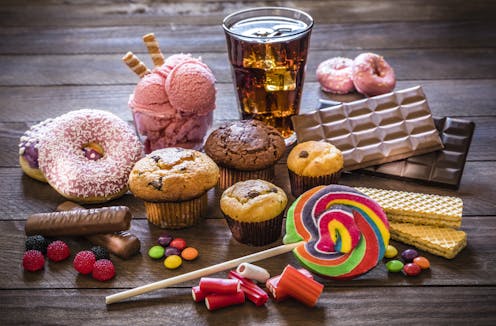How does excess sugar affect the developing brain throughout childhood and adolescence? A neuroscientist who studies nutrition explains
- Written by Lina Begdache, Assistant Professor of Nutrition, Binghamton University, State University of New York
 A diet high in sugary foods can affect brain development in children.carlosgaw/iStock via Getty Images Plus
A diet high in sugary foods can affect brain development in children.carlosgaw/iStock via Getty Images PlusParents often stress about their kids’ sugar intake, but it can be hard to know how much is too much – or what to do about it.
Glucose – a simple sugar that forms the basis of most carbohydrate-rich food – is the...

